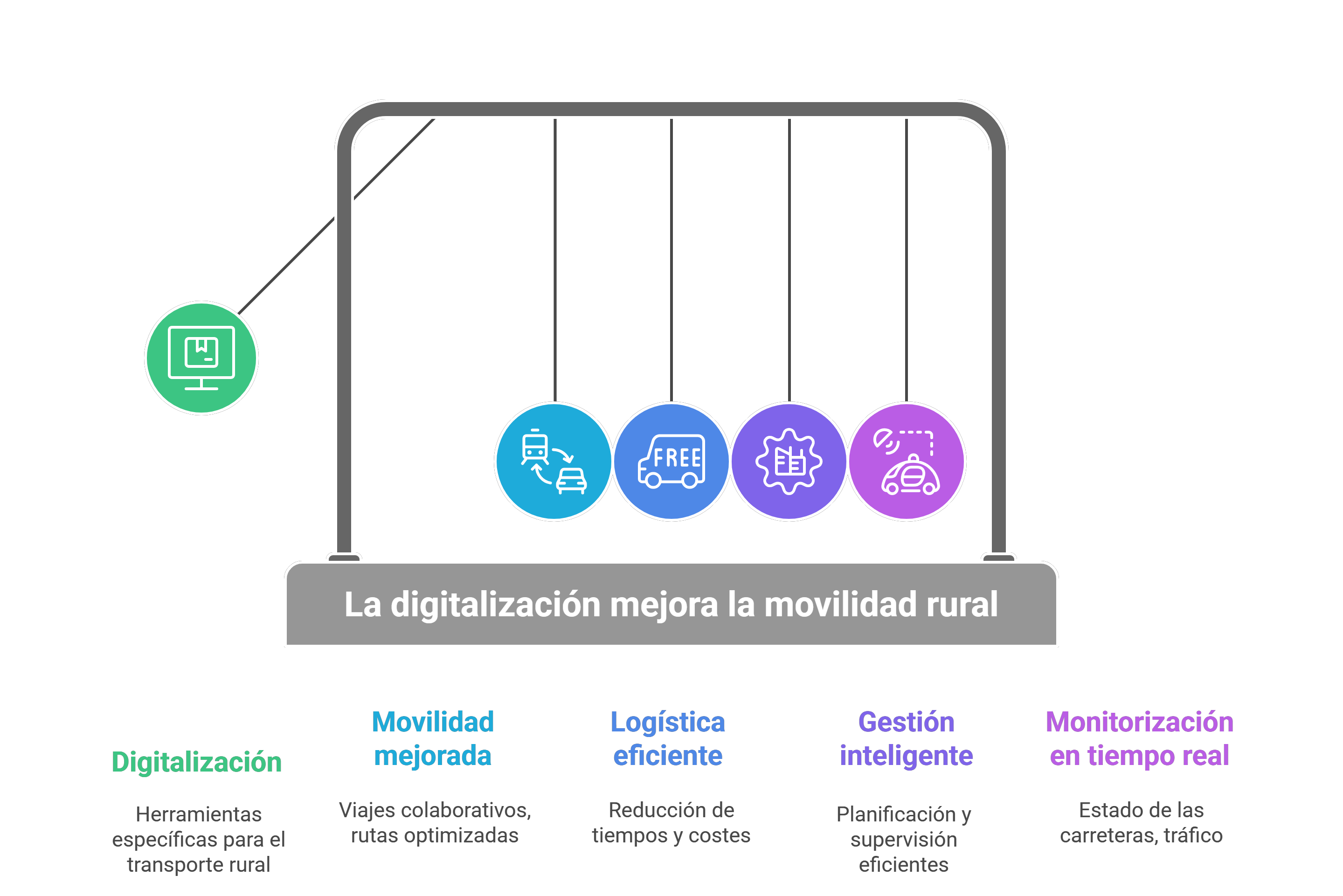Rural transport faces structural challenges that directly impact connectivity, business competitiveness, and the quality of life of its residents. Low population density, territorial dispersion, and an aging population exacerbate the lack of infrastructure and efficient mobility services. In this context, digitalization emerges as a key driver to transform rural transport, making it smarter, more sustainable, and more accessible.
Current Challenges in Rural Transport
Businesses and entrepreneurs located in rural areas face serious difficulties in managing product logistics and accessing efficient distribution networks. At the same time, the population has limited access to basic services and job opportunities due to infrequent public transport or non-optimized routes.
Traditional solutions, such as discretionary transport or limited interurban services, no longer meet the dynamic needs of rural environments. This is where digital technologies can make a real difference.

Innovative Solutions: Mobility Apps and Last-Mile Logistics
Thanks to digitalization, there are now specific tools for rural transport that improve both the mobility of people and the distribution of goods. Some notable solutions include:
- Rural shared mobility apps, which allow users to organize collaborative trips, optimize routes, and reduce costs. Examples like Reby, Meep, or local platforms based on community needs are proving their effectiveness.
- Digitalized last-mile logistics services, which use optimization algorithms to reduce time and costs in delivering local products, even in hard-to-reach areas.
- Smart fleet management systems, enabling small logistics operators to efficiently plan and monitor routes, reducing emissions and improving punctuality.
- Sensors and IoT in rural infrastructure, to monitor road conditions, traffic, or transport needs in real time.
Benefits for Rural Businesses
These solutions not only increase operational efficiency but also generate strategic benefits:
- Reduced logistics costs for rural producers and SMEs.
- Improved access to services and markets.
- Promotion of local employment and new business opportunities.
- Lower environmental footprint and support for a sustainable rural economy.
Contact DIGIS3 to learn how we can support your digitalization process.